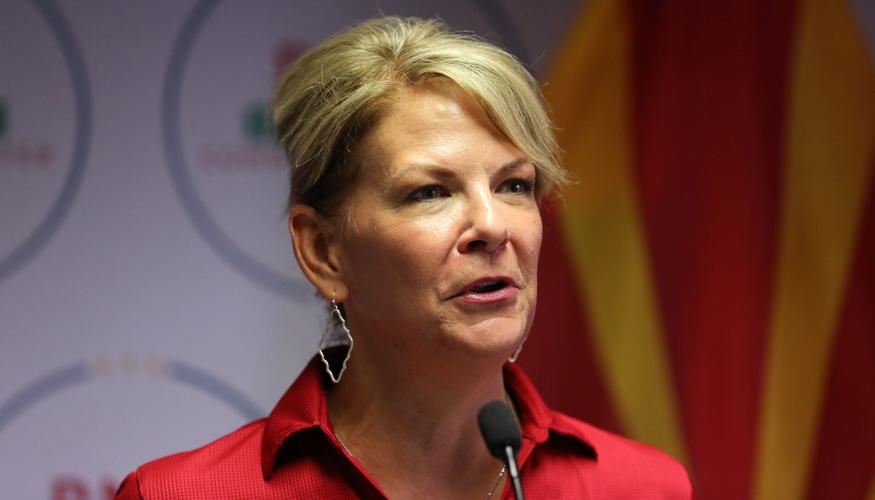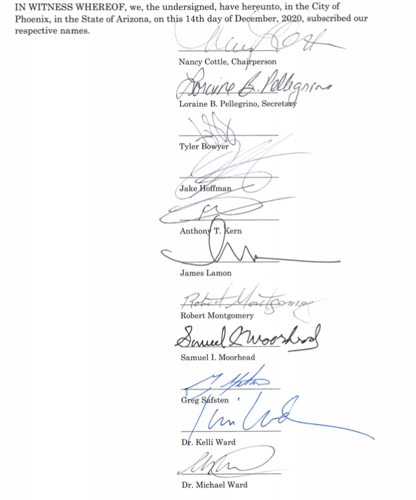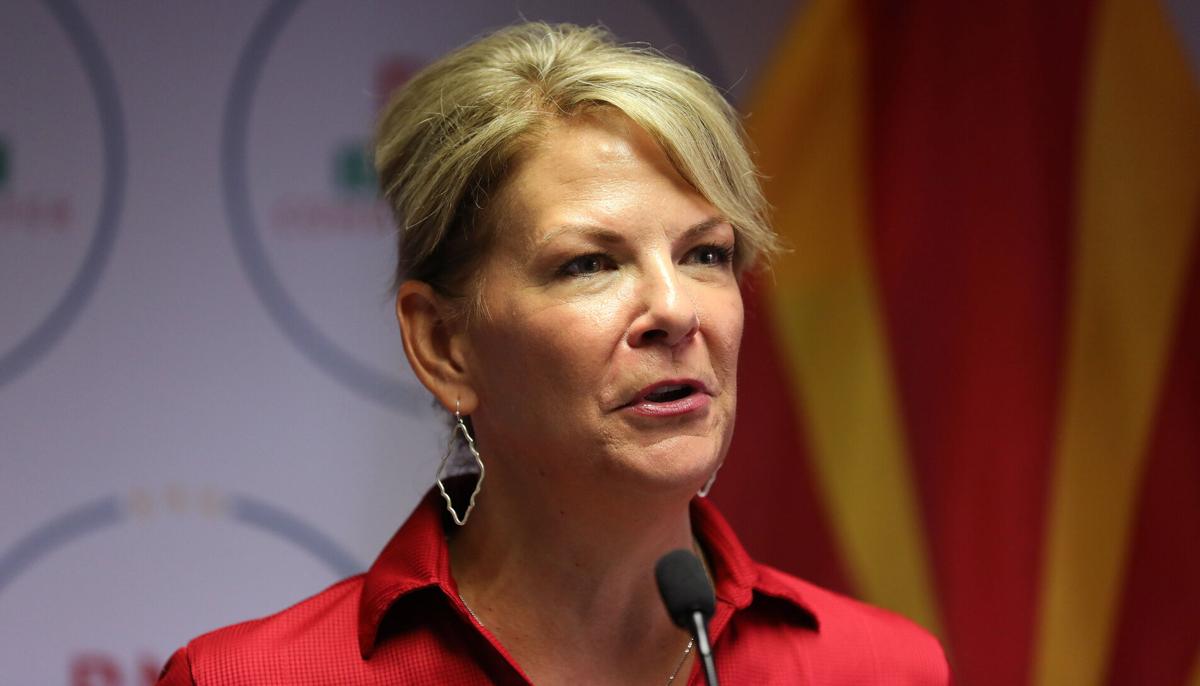We didn’t need Donald Trump’s last two indictments to know that some Arizonans might be in trouble soon over the 2020 election.
The slate of 11 Republicans who declared themselves Arizona’s official electors, even though Democrat Joe Biden had officially won the state, are already under investigation by the Arizona Attorney General’s Office.
And in Michigan, the 16 alternative electors who played out a similar spectacle were indicted last month on eight felony counts each.
That must be a scary prospect for former Arizona GOP Chair Kelli Ward, Republican National Committeeman Tyler Bowyer and the nine others who signed on here.
What’s gradually coming into focus with each Trump indictment, though, is what may distinguish an earnest challenge to a disputed election result from an alleged crime. This will be key as we move toward the next election and its inevitable disputed outcomes.
It’s also becoming clearer the key role Arizona played in the plot to overturn the election, by virtue of the state’s name beginning with A. The debate over our votes was intended to show that the Electoral Count Act doesn’t matter and can be ignored, opening a path for Trump to win.
The key, according to the indictments, is that these acts were all part of a bigger criminal conspiracy.

The 11 GOP electors submitted this certificate on Dec. 14, 2020, even though Joe Biden had been certified as the winner of Arizona's presidential election. They face a criminal investigation.
What Arizona’s electors did, in concert with Republicans in six other states that Biden won narrowly, was declare on Dec. 14, 2020, that they had cast “Arizona’s electoral votes for President and Vice President.” They signed a document saying they were the official electors for Arizona, and they cast their votes for Trump and then-Vice President Mike Pence.
This alone is dangerous for them in that the Michigan indictment and Georgia indictment both classify these documents as the product of “forgery,” because they did not reflect the certified vote counts of their states. But that alone isn’t necessarily enough to put them in jeopardy.
As it turns out, 2020 was not the first time an alternate slate of electors has been submitted. Republicans have frequently pointed to the case of Hawaii in the 1960 election as justification for their 2020 acts. In 1960, it initially appeared Republican Richard Nixon had beaten Democrat John Kennedy by 140 votes, as Politico explained in a recent re-examination of the story.
But when the electoral votes were due, on Dec. 19, 1960, a recount was still going on, so the Kennedy electors also filed a document like the ones the Republican electors did in 2020. When the recount was done later that month, Kennedy barely prevailed, and the Democratic alternate electors were accepted by the courts and by Nixon himself, who was vice president at the time.
Phoenix attorney Tim LaSota, a Republican who has frequently filed election-related lawsuits, pointed to this case as showing why it’s key to have alternative electors in place. If a legal dispute over a presidential election result is still happening when the electors are chosen, he told me, you need alternate electors in case the outcome changes.
“Even if you end up winning, if you don’t have electors appointed by that date, you’re out of luck,” LaSota said. “The bottom line is that, if you’ve got a court case pending challenging the election, I don’t know how you could fault somebody for preserving their rights with an alternate slate of electors.”
What the indictments suggest is that the electors like the ones in Arizona were not just preserving Republicans’ rights, though. They were part of a broader open-ended conspiracy to knowingly overturn correct election results. In other words, this wasn’t just about preserving rights in case an election result changed.
As indicted attorney Kenneth Chesebro said in a Dec. 11, 2020 email: “The purpose of having the electoral votes sent in to Congress is to provide the opportunity to debate the election irregularities in Congress, and to keep alive the possibility that the votes could be flipped to Trump.”
Tellingly, the alternate electors in two states, New Mexico and Pennsylvania, picked up on the distinction between presenting themselves as the true electors, and presenting themselves as alternatives in case court cases changed the outcome of their states’ elections.
The alternate electors from New Mexico said in their certificate that they were sending it “on the understanding that it might later be determined that we are the duly elected and qualified Electors ….”
The Arizona electors included no such conditional language. That may leave them unprotected from being accused of crimes as part of a broader conspiracy led by Trump.

The 11 GOP electors for Arizona included then-GOP Chair Kelli Ward and Republican National Committeeman Tyler Bowyer. They face possible criminal charges because, as recent indictments have shown, the false electoral votes were not just a contingency, in case Trump won a lawsuit, but part of a broader plot.
That’s made more likely by the fact that the whole plot aimed to break open the traditional electoral process by debating Arizona’s electoral outcome in Congress Jan. 6.
“The Senate and House have both violated the Electoral Count Act this evening — they debated the Arizona objections for more than 2 hours,” attorney John Eastman wrote in an email that afternoon.
“So now that the precedent has been set that the Electoral Count Act is not quite so sacrosanct as was previously claimed, I implore you consider one more relatively minor violation and adjourn for 10 days to allow the legislatures to finish their investigations,” continued Eastman, who was indicted in Georgia along with Trump.
So it’s not just that they filed a false electoral certificate that puts Arizona’s 11 GOP electors in potential criminal jeopardy. It’s that, knowingly or not, they joined an open-ended conspiracy that intended to put Trump back in office one way or another — not just if he happened to win a court case or recount in the interim.
Donald Trump and 18 allies have been indicted in Georgia over efforts to overturn his 2020 election loss in the state. The criminal case announced Monday night is the fourth brought against the ex-president and the second this month to allege that he tried to subvert the results of the vote. The indictment details dozens of acts by Trump and his allies to undo his defeat in the battleground state.







